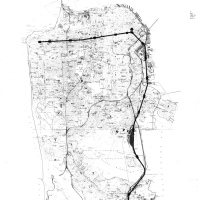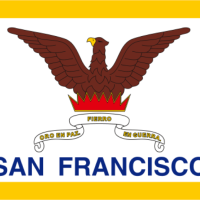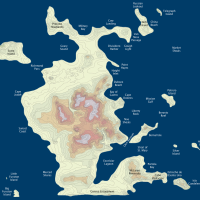Fleets Beneath The Waves
I’ve been following various “World War II + 70 years” blogs and twitter feeds with great interest. Watching these historical events play out bit by bit leaves you with a much different and more nuanced impression that the post-facto “I know how it ends” history we were fed in school.
World War II Day by Day has short summaries of each day’s air, sea and land battles, along with fascinating tidbits. (The Battle of Britain Day by Day blog was also very well done. It’s now “over”, but it will be rerun next year.)
While at this “point” in the war the Germans had given up the air in the Battle of Britain (Airminded is covering the mutual bombing campaign over Europe) the Battle for the Atlantic was well underway. The amount of British shipping sunk by German U-boats is simply astonishing. Survivors were often picked up in lifeboats days if not weeks after their ships were sunk, and were dropped off half way around the world. Sometimes the rescuing ship was sunk shortly after picking up survivors.
And I’m constantly shocked by the damage that armed German merchantmen did in the Pacific. The German raider Komet passed through the Arctic in the summer of 1940 (with the help of Soviet icebreakers) and spent 1940-1941 sinking 40,000 tons of shipping while disguised as Japanese and Soviet freighters. In Nov 19 1940, the Pinguin sunk a refrigerated freighter heading from Australia to Britain. The crew was taken prisoner, but 16 million eggs sank to the bottom of the Indian Ocean. The next day, the Penguin attacked and sank another freighter taking food to England. More prisoners were taken aboard, but the “Pinguin’s First Officer returns to the burning ship to get clothes for the women, who are in their nightgowns.” The ship sunk, taking 5000 pounds of meat, wool, butter and cheese with it.
The Orwell Trust is publishing George Orwell’s war-era diary + 70 years –it’s hit or miss, as it includes how many eggs his chickens laid — but the buildup to the war is interesting, and the Trust links Orwell’s references to daily newspaper articles to the scanned newspaper archives themselves.
One graphic example was the the Daily Telegraph’s scale diagram of the British battle fleet in 1939 on the eve of war:
I did a little digging and figured out which ships were sunk during the war, when and where.
My grandmother told me how stunned the British Empire was when the Hood was sunk in 1941. Churchill’s “Sink the Bismark” was no joke. Check out the WWII DbD blog this coming May for the play-by-play.
Ptak Science Books (a fantastic resource for charts, maps, diagrams and historical analysis) points to a few more naval fleet comparisons, including this analysis of the Japanese fleet that survived WWII.
Ships sunk by class:
On a lighter war note — when Italy invaded Greece in late 1940, it didn’t go very well for the Italians. The Greeks counterattacked and quickly pushed the Italian army back into Albania.
Soon after, in the French Riviera, someone from put up a sign near the Italian border:
“This is French territory. Greeks, do not advance any further.”














This exposes me as WAY out of the history loop, but the day-by-day is so very cool!
I’m immersed in WWII history on a daily basis, since I’m living on Guam and currently reading a French personal account of German occupation (as a potential translation project). And while I know it makes sense that they seem like two totally different wars, the fact that I sometimes forget that they are even related blows me away. I drive by the beach where the Americans landed here to liberate this island from the Japanese every day, but reading about daily interaction with SS guards in a tiny French border town feels like such a different time…
Thanks for the plug and the commentary. I got a lot of traffic from your site.
WWII@70
My pleasure. Thanks to referral pages, I also discovered this chart of the 1937 Coronation Fleet Review — don’t even want to think of the logistics involved.
how much would this be worth
Yes how much is the British one worth i have one?
Can you but a copy of this 1939 British fleet
Fantastic reading. My dad spent almost 28 years in Merchant Marines. From 1941-66. One ship he was on i forget the name of ship, It was hit and sank. 15 guys spent 17 days & 17 nights in a life raft. In Antwerp during battle of the bulge they hit a mine and started sinking. The capt called for full reverse my dad working engine rood ran up on deck told the capt. You stupid S.O.B. you’ll block up the port. Take her out to sea. And they did. Navy scuttled i
I would like to know the name and location of that ship my dad was on when it was sunk. I’ve looked but there’s so much research involved. Any hints on researching this type of info